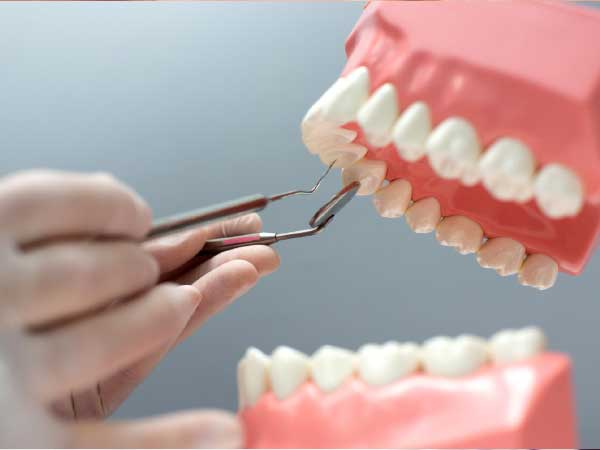The integration of artificial intelligence (AI) into dental diagnostics and treatment planning is revolutionizing the field of dentistry. This technological advancement promises not only to enhance the accuracy and efficiency of dental care but also to improve patient outcomes and overall oral health.

The Role of AI in Dental Diagnostics
Enhanced Diagnostic Accuracy
One of the primary benefits of AI in dental diagnostics is its ability to enhance diagnostic accuracy. Traditional diagnostic methods rely heavily on the experience and intuition of dental professionals, which can sometimes lead to human error. AI systems, on the other hand, can analyze dental images with remarkable precision. By utilizing machine learning algorithms, AI can detect patterns and anomalies in X-rays, CT scans, and intraoral images that might be overlooked by the human eye. This increased accuracy helps in early detection of dental issues such as cavities, periodontal disease, and even oral cancers, allowing for timely and effective intervention.
Predictive Analysis
AI’s predictive capabilities are another game-changer in dental diagnostics. By analyzing a patient’s dental history, lifestyle factors, and genetic information, AI can predict the likelihood of future dental issues. For instance, AI can identify patients at high risk for developing cavities or gum disease and recommend preventive measures accordingly. This proactive approach not only prevents the progression of dental diseases but also reduces the need for invasive treatments, saving both time and costs for patients.
AI in Treatment Planning
Personalized Treatment Plans
Artificial intelligence enables the creation of highly personalized treatment plans tailored to the specific needs of each patient. By integrating data from various sources such as dental records, imaging studies, and patient feedback, AI can recommend the most effective treatment options. This personalized approach ensures that patients receive care that is precisely suited to their condition, improving the likelihood of successful outcomes.
Optimization of Treatment Procedures
AI also plays a crucial role in optimizing dental procedures. For example, AI-powered software can assist in the precise placement of dental implants by creating 3D models of the patient’s oral anatomy. This technology enhances the accuracy of implant placement, reducing the risk of complications and improving the longevity of the implants. Similarly, AI can guide orthodontic treatments by predicting the movement of teeth over time, allowing for more efficient and effective braces or aligner adjustments.
Real-Time Monitoring and Adjustments
The ability of AI to monitor and adjust treatment plans in real-time is another significant advantage. For instance, AI can track the progress of orthodontic treatment and suggest modifications to the treatment plan if necessary. This real-time feedback ensures that the treatment stays on track and adapts to any changes in the patient’s oral health condition.
The Future of AI in Dentistry
AI and Tele-Dentistry
The COVID-19 pandemic has accelerated the adoption of tele-dentistry, and AI is set to play a pivotal role in this domain. AI-powered virtual consultations can provide preliminary assessments and triage, determining the urgency of dental issues and guiding patients on the next steps. This approach not only enhances accessibility to dental care but also ensures that in-person visits are reserved for cases that truly require them.
Integration with Other Technologies
The future of AI in dentistry will likely see greater integration with other advanced technologies such as augmented reality (AR) and 3D printing. For example, AI and AR can work together to provide dentists with a virtual overlay of a patient’s oral anatomy during procedures, enhancing precision. Additionally, AI can assist in the design and fabrication of dental prosthetics using 3D printing, ensuring a perfect fit and optimal functionality.
Conclusion
The transformative impact of AI on dental diagnostics and treatment planning cannot be overstated. By enhancing diagnostic accuracy, enabling predictive analysis, and personalizing treatment plans, AI is set to revolutionize the field of dentistry. As these technologies continue to evolve, dental professionals and patients alike can look forward to more efficient, effective, and personalized dental care.

